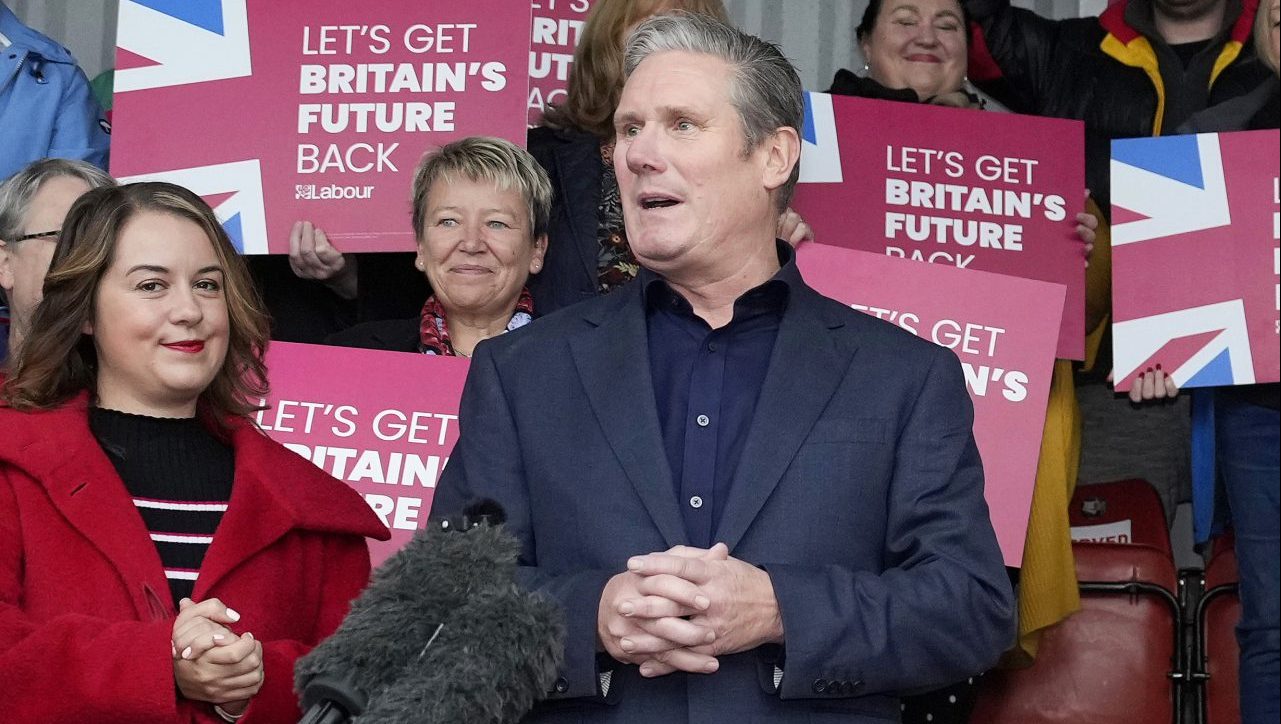It is all too easy to be reductive when we think about how the next government can be better than the current one – beyond replacing ministers who are venal or incompetent with decent, able ones, what else really matters? Is it just a matter of whether or not you can find more money to spend?
Some ideas for Keir Starmer and his team – especially given that more money is unlikely to be forthcoming in the first few years of a new government – come from a perhaps unlikely source: former Conservative cabinet office minister Francis Maude.
Maude has become something of an obsessive about what’s known as the machinery of government: a catch-all term for issues including how Number 10 interacts with departments, how the civil service and ministers interact with each other, and how departments themselves work – especially how the Treasury dominates the rest of government.
Some people think this is the small stuff. Bring in good ministers with good intentions and they’ll get the job done. This has certainly been the attitude of prime minister after prime minister for decades – each of whom has gone on to find they got a lot less done than they expected.
Institutional restraints matter. Liz Truss was the one prime minister in recent years to take the decision to ignore them, which was formally within her power. You may recall how that worked out.
British prime ministers get into Number 10 and discover it’s a terraced house with a bunker in the basement and far too many people working out of a totally unsuitable place. They have the nominal control of the nation, but quickly find that nothing joins up – they don’t have enough staff to track departments, they’re completely outgunned on the domestic front by the Treasury. Eventually, they discover that being PM is like being a lone small tugboat trying to guide a supertanker down a mine-ridden canal.
Maude was commissioned by the government to write a report on ways to improve the centre of government – and from what we’ve seen of it from early leaks, he’s gone well beyond his stated terms of reference and made some serious recommendations, most of them good.
None of them are the kind of stuff that will have people taking to the streets to demand they’re brought in immediately – but taken together they could genuinely make it possible for a new government to actually get things done, better and faster than we can at the moment.
We can largely skip over the sensible-but-obvious stuff like bringing in subject matter expertise, dealing with staff churn, and the like – it’s good but it doesn’t need much political attention.
One key thing Maude puts front and centre is the bizarre situation where the Cabinet Secretary (currently Simon Case, who almost no-one expects to stay in post through a change of government and who is currently off sick) has no formal authority over the permanent secretaries of government departments, despite ostensibly being their boss. Maude correctly notes that this typically British unwritten compromise needs to end if Number 10 is going to function properly.
Everyone talks about beefing up Number 10, but Maude looks like he’ll stop short of the obvious issue – we need to stop trying to run a 21st-century country out of a 17th-century townhouse. The PM needs their own department that is resourced so as to be able to staff the PM like other departments staff and inform their ministers.
Maude is much bolder, though, when it comes to the Treasury, which he states should be broken up. There is no God-given reason why the department responsible for looking after the country’s economy should also be the department running the slide rule over government spending and every single budget.
One logical way to do that is to move the latter function into Number 10 (or its successor department), meaning that it’s still sitting with someone who has to hold everything together.
The need for input on how tax and spending decisions would affect the economy would mean the Treasury was still a strong department that the PM needed to consult regularly – but its current role as the wet blanket crushing any investment or real change in the country would be at least somewhat diminished.
Maude has other suggestions too, such as subjecting ministers to 360-degree performance reviews – giving their officials some input. Interesting though these are, it feels in practice they would be somewhat too reliant on having a prime minister who truly cares what they say.
As and when the next Boris Johnson-style prime minister comes along, as they will with grim inevitability, what is to stop them just ignoring such niceties? Trying to find some form of long-term system that merges institutional accountability with political accountability is a difficult problem, and one unlikely to be solved in a single report – but it’s good that someone finally seems to be trying.
Starmer has made it clear he wants to look ready for government, even as the party faithful are warned that complacency must not be tolerated. The appointment of Sue Gray as his chief of staff was evidence of this – her mandate is to make sure the party knows how government works and can hit the ground running, if elected.
Francis Maude has gifted Starmer with some real, dramatic reforms that he could introduce in his first 100 days of government, without major spending implications. Gordon Brown gave the Bank of England operational independence as his big splashy “we’ve arrived” moment. Could transforming Number 10 and the Treasury’s toxic and dysfunctional relationship give Keir Starmer his?




